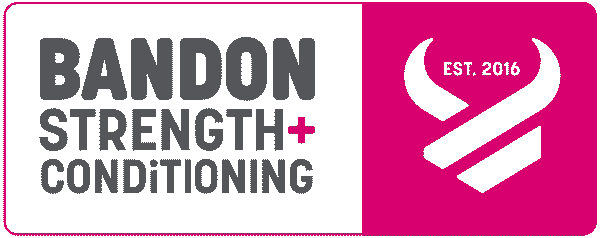Did you know that sleep has a direct impact on your fitness and recovery? It’s true – the quality and duration of your sleep play a crucial role in achieving peak performance and maintaining restorative health. From muscle repair and hormone balance to cognitive function and energy levels, sleep is a vital component of your fitness journey.

Key Takeaways
- Sleep is essential for optimal fitness and recovery.
- Quality sleep improves muscle repair and growth.
- Hormone balance is influenced by sleep, affecting fitness outcomes.
- Adequate sleep minimizes the risk of injuries during physical activity.
- Developing healthy sleep habits enhances overall recovery and performance.
The Integral Connection Between Sleep and Recovery in Fitness
When it comes to fitness recovery, sleep plays a vital role in the process. Quality sleep is essential for muscle repair, hormone balance, and overall well-being. Achieving good sleep quality is not just about the quantity of sleep, but also the quality. Let’s explore the integral connection between sleep and recovery in fitness.
One of the key aspects of sleep’s impact on fitness recovery is its direct influence on muscle repair and growth. During sleep, the body enters a state of rest and repair, enabling the repair and rebuilding of muscles that have been stressed during exercise. Quality sleep provides the necessary environment for optimal muscle recovery, ensuring that the body can repair and rebuild muscles effectively.
“Sleep is the golden chain that ties health and our bodies together.” – Thomas Dekker
In addition to muscle repair, sleep also plays a crucial role in hormone balance. Sleep deprivation or poor sleep quality can disrupt the balance of hormones involved in fitness and recovery, such as testosterone and cortisol. These hormones are instrumental in muscle growth, energy regulation, and overall fitness outcomes. Adequate sleep is necessary to maintain hormone balance and support optimal fitness performance.
The integral connection between sleep and recovery in fitness highlights the importance of prioritizing sleep quality for overall well-being. By ensuring adequate and restorative sleep, individuals can enhance their muscle repair, hormone balance, and overall fitness outcomes.
Exploring the Nightly Repair: Muscle Recovery Through Restorative Sleep
Restorative sleep plays a vital role in the muscle recovery process, allowing our bodies to repair and rejuvenate. When we sleep, our bodies enter a state of deep relaxation, enabling the natural restorative mechanisms to take place.

Understanding the Role of Growth Hormones During Sleep
During restorative sleep, our bodies release growth hormones that are essential for muscle repair and growth. These hormones stimulate the regeneration of damaged tissues and promote the synthesis of new proteins, aiding in the recovery of muscle fibers.
The release of growth hormones is at its peak during deep sleep, which is why getting enough quality sleep is crucial for optimal muscle recovery. By prioritizing restorative sleep, we can enhance the body’s natural healing processes, speeding up the recovery time between workouts.
Minimising Injury Risks with Adequate Sleep
Adequate sleep also plays a significant role in minimizing the risk of injuries during physical activity. When we are sleep-deprived or fatigued, our coordination, reaction time, and cognitive function are impaired, increasing the likelihood of accidents and injuries.
By ensuring we get enough restorative sleep, we can enhance our focus, reaction time, and overall physical performance, reducing the risk of injuries. This is particularly important for athletes and individuals engaged in intense physical training or demanding fitness routines.
It is essential to prioritize sleep as part of a comprehensive approach to fitness and overall well-being. By allowing our bodies to rest and recover through restorative sleep, we can optimize muscle recovery, promote growth hormone release, and minimize the risk of injuries, leading to improved performance and long-term fitness success.
Navigating Hormonal Balance: Sleep’s Impact on Fitness Hormones
Sleep plays a crucial role in maintaining hormonal balance, which is essential for optimal fitness. When it comes to hormones involved in fitness, two key players are testosterone and cortisol. Adequate sleep and sleep quality directly influence the levels and balance of these fitness hormones.
The Influence of Sleep on Testosterone:
Sleep has a significant impact on testosterone production in the body. Testosterone is a hormone responsible for muscle growth, strength, and energy levels. Studies have shown that sleep deprivation or poor sleep quality can lead to reduced testosterone levels, affecting fitness performance and recovery.
Getting sufficient and high-quality sleep allows the body to produce and maintain optimal levels of testosterone, contributing to improved muscle mass, strength gains, and overall fitness performance.
The Impact of Sleep on Cortisol:
Cortisol, often referred to as the stress hormone, plays a vital role in regulating metabolism, immune function, and inflammation. During sleep, cortisol levels typically decrease, allowing the body to recover and restore balance.
However, inadequate sleep or disrupted sleep patterns can lead to elevated cortisol levels, contributing to increased stress, weight gain, and impaired recovery. Chronic sleep deprivation can disrupt the natural cortisol rhythm, negatively affecting fitness outcomes.
Disrupted Sleep and Imbalances in Fitness Hormones:
When sleep is compromised, such as due to sleep disorders or consistently poor sleep quality, imbalances in fitness hormones can occur. The alteration in testosterone and cortisol levels can hinder muscle recovery, growth, and performance, making it harder to achieve fitness goals.
It’s essential to prioritize sleep and ensure optimal sleep quality to maintain hormonal balance and support overall fitness. By prioritizing quality sleep, fitness enthusiasts can optimize their hormonal environment, promoting muscle repair, growth, and overall fitness performance.
| Effects of Sleep on Fitness Hormones | Testosterone | Cortisol |
|---|---|---|
| Optimal Sleep | Supports testosterone production | Helps maintain healthy cortisol levels |
| Sleep Deprivation | Decreased testosterone levels | Elevated cortisol levels |
| Poor Sleep Quality | Reduced testosterone production | Imbalanced cortisol levels |
Enhancing Workout Performance with Quality Sleep
Quality sleep plays a crucial role in enhancing workout performance. When you prioritize a good night’s rest, you provide your body with the necessary time and conditions to optimize its physical capabilities. Whether you’re an athlete, a fitness enthusiast, or someone looking to improve their exercise routine, incorporating quality sleep into your lifestyle can significantly impact your overall fitness goals.
Improving Cognitive Function
In addition to its physical benefits, quality sleep also enhances cognitive function. When you get enough restorative sleep, your brain has the opportunity to repair and consolidate memories, improving your ability to focus, concentrate, and make better decisions. This increased mental clarity translates into improved athletic performance, allowing you to perform at your best both physically and mentally during workouts and training sessions.
Optimising Energy Levels for Greater Endurance
Another significant benefit of quality sleep is its ability to optimize energy levels, leading to greater endurance during physical activities. When you prioritize restful and uninterrupted sleep, your body regenerates and replenishes energy stores, ensuring that you have the stamina and resilience to push through challenging workouts and training sessions with ease. By sustaining higher energy levels, you can maintain intensity and performance for longer durations, leading to more productive and effective exercise sessions.
| Benefits of Quality Sleep for Workout Performance | |
|---|---|
| Enhanced physical capabilities | Improved mental clarity and focus |
| Optimized energy levels | Increased endurance during workouts |
| Improved muscle recovery and repair | Reduced risk of injury |
By prioritizing quality sleep, you can unlock your body’s full potential and achieve optimal workout performance. Not only will you experience physical benefits such as enhanced muscle recovery and reduced risk of injury, but you’ll also notice improvements in cognitive function, energy levels, and endurance. So, invest in quality sleep to maximize your fitness journey and reach new heights in your athletic pursuits.
Establishing Healthy Sleep Habits for Optimal Recovery
Developing healthy sleep habits is crucial for optimizing recovery and achieving peak performance. By following consistent sleep schedules and incorporating a pre-sleep ritual, you can improve your sleep quality and support your body’s optimal recovery process.
Crafting Consistent Sleep Schedules
To establish healthy sleep habits, it’s essential to maintain consistent sleep schedules. Going to bed and waking up at the same time each day helps regulate your body’s internal clock, promoting better sleep quality. Aim for 7-9 hours of sleep per night, depending on your individual sleep needs.
Developing a Pre-Sleep Ritual
A pre-sleep ritual can help signal your body that it’s time to wind down and prepare for sleep. Consider incorporating relaxing activities such as reading a book, practicing deep breathing exercises, or taking a warm bath. Avoid exposure to electronic devices and stimulating activities close to bedtime, as they can interfere with your ability to fall asleep.

By implementing these healthy sleep habits, you can create an ideal environment for optimal recovery and enhance your overall well-being. Consistent sleep schedules and a pre-sleep ritual contribute to improved sleep quality, allowing your body to rest and recover more effectively. Prioritizing healthy sleep habits is an essential component of achieving peak performance in both your fitness and daily life.
Creating a Sleep-Inducing Environment: Tips for a Restful Night
Getting a restful night’s sleep is crucial for recovery and overall well-being. By creating a sleep-inducing environment, you can optimize your sleep quality and wake up feeling refreshed and rejuvenated. Here are some practical tips to help you create the perfect sleep environment:

- Keep your bedroom dark: Ensure your sleep space is as dark as possible by using blackout curtains or an eye mask. Darkness promotes the release of melatonin, a hormone that regulates sleep.
- Reduce noise: Minimize noise disturbances by using earplugs, a white noise machine, or soothing background music to create a peaceful ambience.
- Optimal temperature: Set your bedroom temperature to a cool and comfortable level, typically between 60 to 67 degrees Fahrenheit. Adjust your bedding and clothing accordingly to maintain a pleasant sleep environment.
- Invest in a supportive mattress and pillows: Choose a mattress and pillows that provide proper support and alignment for your body. This helps reduce discomfort and promotes better sleep quality.
- Declutter and organize: Create a clean and clutter-free sleep environment to promote relaxation and reduce distractions.
- Utilize aromatherapy: Incorporate calming scents like lavender or chamomile through essential oils, diffusers, or scented candles to create a soothing atmosphere.
- Create a bedtime routine: Establish a pre-sleep ritual that includes activities like reading, meditation, or a warm bath to signal your body that it’s time to unwind and prepare for sleep.
By implementing these sleep environment tips, you can create a tranquil space that encourages a restful night’s sleep and promotes optimal recovery.
Deep Sleep: The Critical Stage for Fitness Recovery
When it comes to fitness recovery, deep sleep plays a crucial role. Deep sleep, also known as slow-wave sleep, is a phase of sleep characterized by synchronized brainwave activity and slow, rhythmic breathing. During this stage, the body undergoes significant physiological and metabolic processes, promoting muscle repair, growth, and overall recovery.
One of the vital aspects of deep sleep is its impact on physical performance and fitness outcomes. Research has shown that adequate deep sleep is associated with improved athletic performance, enhanced muscle strength, and increased endurance. Fitness enthusiasts who prioritize deep sleep are likely to experience better recovery and reach their peak performance levels.
The Significance of REM Sleep
Another important stage of the sleep cycle is REM (rapid eye movement) sleep. REM sleep is when vivid dreams occur and is associated with cognitive processes, learning, and memory consolidation. Although REM sleep does not directly contribute to physical recovery, it plays a crucial role in mental well-being and cognitive function.
During REM sleep, the brain consolidates newly acquired information and strengthens memory. It is also during this stage that creativity and problem-solving abilities are enhanced. Quality REM sleep is essential for mental clarity, focus, and overall cognitive performance, which are crucial elements for fitness enthusiasts striving for optimal results.
How Lack of Deep Sleep Impairs Recovery
A lack of deep sleep can significantly impair the recovery process. Without sufficient deep sleep, muscles may not have enough time to repair and grow, leading to decreased recovery rates and increased risk of injury. Lack of deep sleep can also impact hormone balance, such as reduced secretion of growth hormones, which are essential for muscle repair and development.
Sleep impairments, such as insomnia or sleep disorders, can prevent individuals from reaching deep sleep stages, compromising their ability to recover effectively. Addressing sleep issues and ensuring adequate deep sleep is crucial for fitness enthusiasts looking to optimize their recovery and achieve their fitness goals.

Mitigating Sleep Deprivation: Strategies for Fitness Enthusiasts
For fitness enthusiasts, sleep deprivation can have a significant impact on overall well-being and performance. It’s essential to prioritize sleep to optimize recovery and achieve peak fitness levels. Here are some strategies to mitigate sleep deprivation and promote better sleep quality:
- Establish a Consistent Sleep Schedule: Stick to a regular sleep schedule, going to bed and waking up at the same time every day, even on weekends. This helps regulate the body’s internal clock and promotes better sleep duration and quality.
- Create a Sleep-Inducing Environment: Set up a sleep-friendly bedroom environment by making the room dark, quiet, and cool. Use blackout curtains, earplugs, or white noise machines if necessary. Avoid screens and bright lights before bed as they can interfere with melatonin production, a hormone that helps regulate sleep.
- Develop a Relaxing Pre-Sleep Ritual: Establishing a pre-sleep routine can signal to your body that it’s time to wind down and prepare for sleep. Engage in activities such as reading a book, practicing deep breathing exercises, or taking a warm bath to promote relaxation and improve sleep quality.
- Avoid Stimulants and Heavy Meals: Limit the consumption of caffeine, nicotine, and alcohol, especially close to bedtime. These substances can interfere with sleep onset and disrupt sleep cycles. Additionally, avoid heavy meals before bedtime, as digestive processes can affect sleep quality.
- Practice Stress Management Techniques: High stress levels can contribute to sleep deprivation. Incorporate stress management techniques into your daily routine, such as meditation, yoga, or journaling, to promote relaxation and better sleep.
- Create a Comfortable Sleep Environment: Invest in a comfortable mattress, pillows, and bedding that support your body and help regulate temperature. Optimize your sleep environment to promote restful and uninterrupted sleep.
- Limit Screen Time Before Bed: Exposure to screens emitting blue light, such as smartphones, tablets, and laptops, can disrupt sleep patterns. Avoid using electronic devices at least an hour before bedtime to improve sleep quality.
- Consider Sleep Supplements: Consult with a healthcare professional about incorporating sleep supplements, such as melatonin, into your sleep routine. These supplements can help regulate sleep-wake cycles and improve sleep quality when used correctly and under professional guidance.
By implementing these strategies, fitness enthusiasts can mitigate sleep deprivation, optimize recovery, and perform at their best. Prioritizing sleep is essential for achieving and maintaining peak fitness levels.
“Sleep and Recovery”: Harnessing Sleep’s Potential for Athletic Enhancement
When it comes to athletic performance and recovery, sleep plays a crucial role. Athletes who prioritize quality sleep can tap into its potential for enhancing their overall performance and optimizing their recovery process.
Sleep offers specific benefits that directly impact athletic performance. Adequate sleep promotes proper muscle recovery, improves cognitive function, and optimizes energy levels, all of which are essential for optimal athletic performance.
One of the key benefits of sleep for athletes is its impact on muscle recovery. During sleep, the body goes through restorative processes, repairing and building muscles that have been stressed during exercise. Quality sleep ensures that these processes can take place effectively, helping athletes recover faster and perform at their best.
Additionally, sleep plays a vital role in cognitive function, which is critical for athletic proficiency. A good night’s sleep allows the brain to consolidate memories, improve focus, and enhance decision-making skills, all of which are essential for athletes to make split-second, strategic choices during their competitions or workouts.
Furthermore, sleep is closely linked to energy levels and endurance. Optimal rest provides the body with the necessary time to replenish energy stores, regulate hormones, and repair any cellular damage. Athletes who prioritize sleep can experience increased energy levels, allowing them to endure longer and perform at a higher level.
In summary, sleep has the potential to enhance athletic performance and recovery. Prioritizing quality sleep enables athletes to optimize their muscle recovery, improve cognitive function, and optimize energy levels for peak performance. By harnessing the power of sleep, athletes can unlock their full potential and achieve their fitness goals.
From Mental Clarity to Physical Strength: The Broad Spectrum of Sleep Benefits
Sleep offers a myriad of benefits that extend beyond physical rejuvenation. Adequate rest plays a vital role in enhancing mental well-being, promoting clarity, and improving cognitive function. Additionally, sleep contributes to memory consolidation, which has a direct impact on athletic proficiency.
Elevating Mental Well-being Through Rest
Quality sleep is essential for maintaining optimal mental well-being. When we sleep, our brains undergo processes that promote cognitive function and emotional balance. During sleep, the brain consolidates memories, processes emotions, and restores neurotransmitters that are crucial for mental clarity and stability.
A restful night’s sleep allows us to wake up with improved mood, increased focus, and better decision-making abilities. It enables us to tackle daily challenges with a clearer mindset and reduces the risk of mental health issues such as anxiety and depression.
Memory Consolidation and Athletic Proficiency
Sleep plays a pivotal role in the consolidation of memories, a process crucial for learning and skill acquisition, including athletic proficiency. Research has shown that deep sleep, particularly REM sleep, is associated with memory consolidation. During REM sleep, the brain processes and stores information, enhancing our ability to retain new skills and knowledge.
For athletes, quality sleep contributes to improved muscle memory, coordination, and reaction time, all vital for maximizing athletic performance. By allowing the brain to consolidate the learnings and techniques acquired during training, sleep enhances the mind-body connection essential for successful athletic endeavors.
Overall, obtaining sufficient sleep is indispensable for both mental and physical well-being. From promoting mental clarity and elevating mood to aiding memory consolidation and optimizing athletic proficiency, sleep is an invaluable asset on the path to holistic health and performance.
Personalising Your Sleep Cycle: Finding What Works for You
When it comes to achieving optimal sleep for better recovery and performance, one size does not fit all. Each individual has unique sleep needs and preferences that should be considered to personalise their sleep cycle. By personalising your sleep routine, you can enhance the quality of your sleep and maximise its benefits.
Finding the optimal sleep routine begins with understanding your individual sleep needs. Some people may require more hours of sleep to feel rested, while others may function well on fewer hours. It’s essential to listen to your body and identify the amount of sleep that leaves you feeling refreshed and energised.
To personalise your sleep cycle, consider the following factors:
- Sleep duration: Experiment with different sleep durations to find the ideal amount that suits your needs. This may vary depending on age, health condition, and activity level.
- Sleep environment: Create a sleep-inducing environment by keeping your bedroom dark, quiet, and at a comfortable temperature. Eliminate distractions such as electronic devices and use blackout curtains or an eye mask if needed.
- Bedtime routine: Establish a pre-sleep ritual that helps signal to your body that it’s time to wind down. This can include activities such as reading a book, practicing relaxation techniques, or taking a warm bath.
- Sleep schedule: Consistency is key when it comes to sleep. Try to maintain a consistent sleep schedule by going to bed and waking up at the same time each day, even on weekends.
- Bedtime habits: Avoid stimulants such as caffeine and nicotine close to bedtime, as they can interfere with your ability to fall asleep. Instead, opt for decaffeinated herbal teas or other relaxing beverages.
By personalising your sleep cycle and finding what works best for you, you can improve the quality of your sleep and enhance your overall well-being. Remember, it may take some time and experimentation to discover your optimal sleep routine, but the effort is well worth it for better recovery and peak performance.
Summary
Embracing Sleep as a Pillar of Holistic Fitness
In this article, we have explored the crucial role that sleep plays in fitness and recovery. We have highlighted how quality sleep contributes to overall restorative health and enhances performance. From muscle recovery to hormonal balance, sleep plays a fundamental role in achieving peak performance in fitness.
Committing to Better Sleep for Recovery and Peak Performance
As we conclude, it is essential to emphasize the significance of embracing sleep as a pillar of holistic fitness. By committing to better sleep habits and prioritizing rest, we can optimize our recovery and ultimately enhance our performance in physical activities. Let us remember that investing in quality sleep is investing in our overall well-being and long-term success.
FAQ
What is the significance of sleep for fitness and recovery?
Sleep plays a crucial role in fitness and recovery by promoting overall restorative health and enhancing performance. It is essential for achieving peak performance in fitness and is strongly connected to the recovery process.
How does sleep quality impact muscle repair and growth?
Quality sleep directly impacts muscle repair and growth. During sleep, growth hormones are released, facilitating muscle repair and contributing to muscle growth. Restorative sleep is essential for effective muscle recovery.
How does sleep influence hormone balance for fitness?
Sleep has a significant influence on hormone balance for fitness. Hormones such as testosterone and cortisol are affected by sleep, and disrupted sleep can lead to imbalances in these hormones, which can negatively impact fitness outcomes.
What are some strategies for establishing healthy sleep habits?
To promote optimal recovery, it is important to establish healthy sleep habits. This includes crafting consistent sleep schedules, developing a pre-sleep ritual, and creating a sleep-inducing environment. These practices can improve sleep quality and enhance recovery.
Why is deep sleep important for fitness recovery?
Deep sleep is a critical stage of the sleep cycle for fitness recovery. It allows for the repair and restoration of muscles, aids in memory consolidation, and promotes overall recovery and rejuvenation.
How can sleep deprivation be mitigated for fitness enthusiasts?
Fitness enthusiasts can mitigate sleep deprivation by implementing strategies such as prioritizing sleep, creating a sleep-friendly environment, and practicing relaxation techniques before bed. These actions can help improve sleep quality and overall recovery.
What are the benefits of sleep for athletes?
Sleep offers a wide range of benefits for athletes, including improved mental clarity, enhanced physical strength, optimized energy levels for better endurance, and better overall performance and recovery.
How does sleep impact mental well-being and athletic proficiency?
Quality sleep elevates mental well-being by promoting clarity, reducing stress levels, and enhancing cognitive function. It also plays a crucial role in memory consolidation, which is essential for athletic proficiency.
How can individuals personalize their sleep cycles?
Personalizing sleep cycles involves finding the optimal sleep routine that works for each individual’s needs. This may include experimenting with different bedtimes, wake-up times, and sleep durations to determine what provides the best recovery and performance results.
Why is it important to embrace sleep as a pillar of holistic fitness?
Sleep is an essential pillar of holistic fitness as it contributes to overall restorative health, enhances physical and mental well-being, and plays a critical role in the recovery and performance of athletes and fitness enthusiasts.
How can individuals commit to better sleep for recovery and peak performance?
Individuals can commit to better sleep by prioritizing it as a key part of their wellness routine, adopting healthy sleep habits, following personalized sleep schedules, and creating a sleep-friendly environment. This commitment can lead to improved recovery and peak performance.


